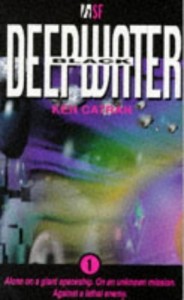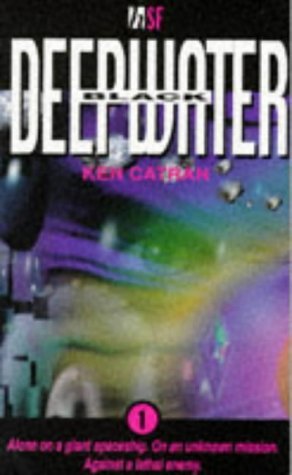 I read this book slowly over the course of what was probably months. It turned out to be the perfect book for picking up and putting down. The plot wasn’t hard to follow and the characters weren’t so numerous or complex that it really mattered whether I remembered them or not. And I also didn’t care. I didn’t feel a compelling need to keep reading to figure out what was going on.
I read this book slowly over the course of what was probably months. It turned out to be the perfect book for picking up and putting down. The plot wasn’t hard to follow and the characters weren’t so numerous or complex that it really mattered whether I remembered them or not. And I also didn’t care. I didn’t feel a compelling need to keep reading to figure out what was going on.
Which is perhaps a damning criticism because the book was just one giant mystery made up of little mysteries. And I just didn’t care.
The main character is either a kid in the contemporary real world who goes to school, etc, or he’s a kid with a bunch of other kids flying a spaceship in the future. He’s ‘prexing’, a word which I never did figure out, and just falling into this hallucinatory state where he believes he’s living out the life of a 20th-21st century Earth kid. Or he’s actually that kid.
On the ship, it’s a group of I dunno maybe half a dozen kids, who don’t really know what they’re doing or where they’re going. And there’s like creatures and jel and dangerous random things they have to fight off, and I don’t even know why. And two of the kids are plotting, but not secretively or very well, to get voice control over the computer. But whatever.
So the mysteries are, like, what’s this prexing thing about, why are these kids on the ship, because they don’t really know themselves, what is this ship and why was it built, where are they going, etc, etc. And why is it called Deepwater anyway?
Well, you won’t get answers to all of those questions by reading the book. (And darned if I’m going to read any more in the series to try to find them either.) And the answers that are provided are full of crap science that I’d love to pick apart, but would be major spoilers. Because what’s the point at all of reading this book if I tell you what’s going on in it? None. But it fails biology and it fails astronomy. It probably also fails physics generally. Maybe ecology.
There certainly is potential in the overarching idea, and enough hand-waving would’ve made me fine with the poor science. However, it would’ve had to have done a lot more with the characters. I couldn’t see most of them even 2-dimensionally, let alone 3. One of them had the annoying tendency to learn things and then not want to tell anyone else. And she was pretty much the most developed of all the characters.
My recommendation has to be to give this one a pass. If you want kids alone on a spaceship, try Marion Zimmer Bradley or Dom Testa.

